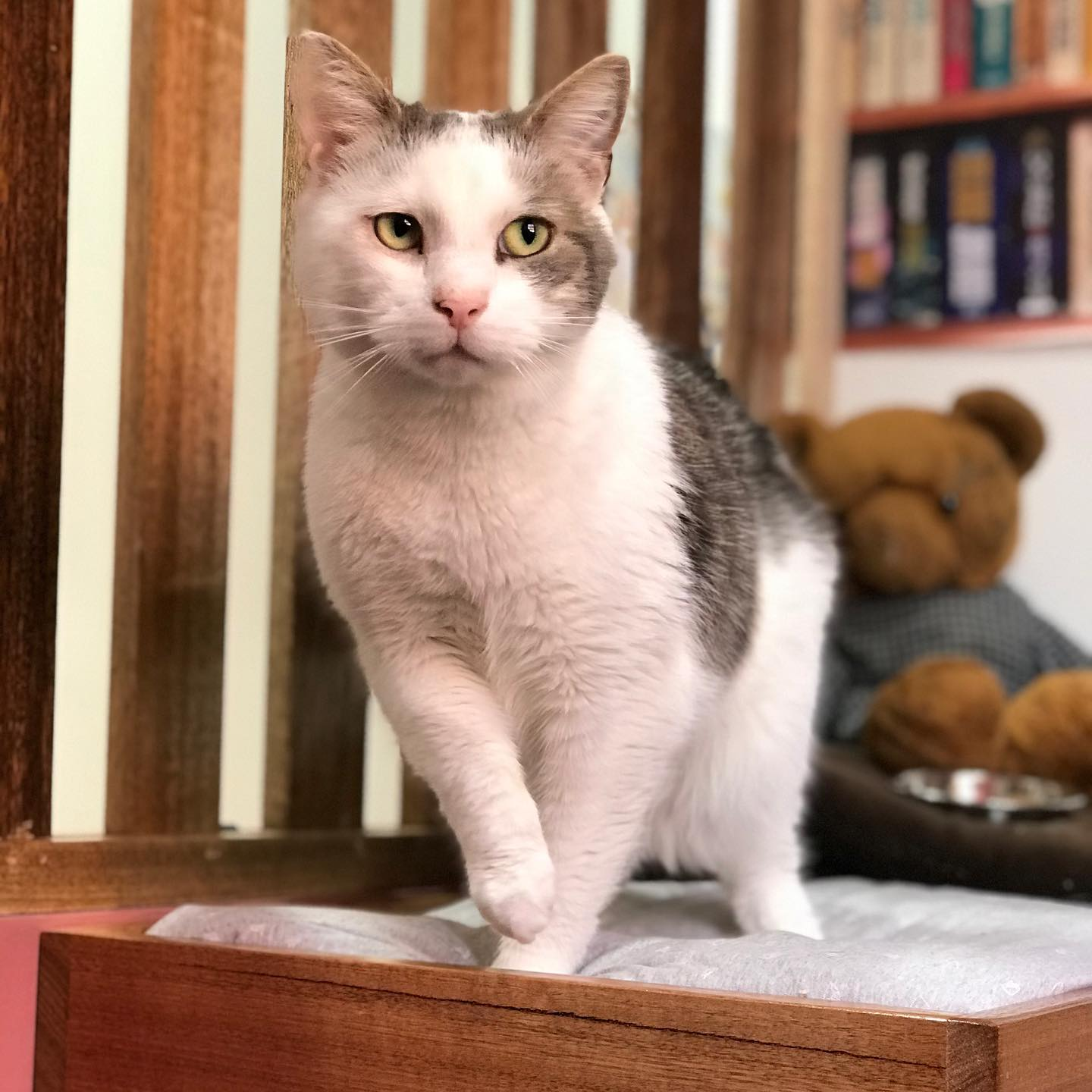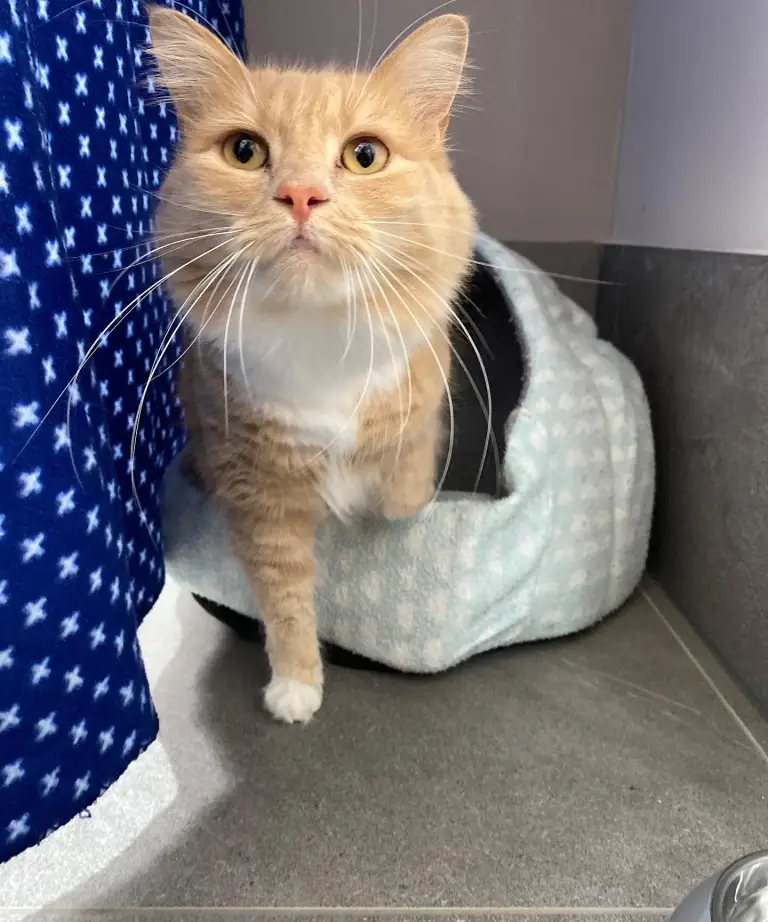Can Cats Suffer From Anxiety? Cats are known for their independent and self-sufficient nature, but that doesn’t mean they are immune to stress and anxiety. Just like humans, cats can also experience anxiety which can greatly impact their overall well-being. As responsible pet owners, it is important to understand the signs and causes of anxiety in cats and how to help them cope with it.
In this article, we will delve deeper into the topic of feline anxiety, exploring its common symptoms, triggers, and effective ways to manage and treat it. By learning more about this condition, we can provide our beloved feline companions with the care and support they need to live a happy and healthy life.
Understanding Feline Anxiety
Feline anxiety is a state of uneasiness or fear that cats may experience in response to certain situations, objects, or events. It can manifest in different ways and can greatly affect a cat’s behaviour and overall well-being. Some common signs of feline anxiety include excessive grooming, hiding, aggression, destructive behaviour, decreased appetite, and avoidance. It is important to note that these behaviours can also be caused by other underlying medical conditions, so it is essential to consult a veterinarian for proper diagnosis.
There are various triggers that can cause anxiety in cats such as changes in their environment or routine, loud noises like thunderstorms or fireworks, new people or pets in the household, and even past traumatic experiences. Cats who have been stray or abandoned may also have a higher tendency to experience anxiety.
Plus, cats are sensitive creatures and can easily pick up on their owner’s stress and emotions, which can also contribute to their own feelings of anxiety. It is important for pet owners to be aware of these triggers and provide a safe and comfortable environment for their feline friends.
Can Cats Suffer From Separation Anxiety?
Yes, cats can suffer from separation anxiety just like dogs. This type of anxiety is characterised by excessive distress or fear when a cat is left alone for an extended period of time. Cats are social animals and form strong bonds with their owners, so being left alone can cause them to feel anxious and stressed.
Some common signs of separation anxiety in cats include excessive vocalisation, destructive behaviour, inappropriate elimination, and loss of appetite. It is important to note that these behaviours can also be caused by other medical conditions, so it is essential to consult a veterinarian for proper diagnosis.
Steps to Help an Anxious Cat

If you suspect that your cat is suffering from anxiety, the first step is to consult a veterinarian for proper diagnosis and treatment. Once any underlying medical conditions are ruled out, there are various steps pet owners can take to help their anxious feline companion.
Create a safe and comfortable environment
Cats are creatures of habit and thrive in a stable and predictable environment. Disruptions or changes to their routine can cause them to feel anxious and stressed. As pet owners, it is important to provide a safe and comfortable environment for our feline friends.
This can include creating a designated space for your cat with their bed, toys, and scratching post, where they can retreat when feeling overwhelmed. It is also important to keep their litter box clean and easily accessible at all times.
Keep a consistent routine
As mentioned before, cats thrive on consistency and predictability. Keeping a consistent routine for feeding, playtime, and cuddle sessions can help reduce feelings of anxiety in cats. If there are any unavoidable changes to their routine, it is important to gradually introduce them and provide extra reassurance and attention during these times.
Plus, cats are creatures of habit and can easily pick up on changes in their owner’s behaviour. It is important for pet owners to manage their own stress and emotions in order to help their cat feel calm and secure.
Provide plenty of mental and physical stimulation
Boredom can also lead to anxiety in cats, so it is important to provide them with plenty of mental and physical stimulation. This can include interactive toys, puzzle feeders, and designated playtime sessions with their owners.
In addition, providing opportunities for your cat to engage in natural behaviours such as scratching, climbing, and hunting (with safe alternatives) can also help reduce feelings of anxiety. A tired and mentally stimulated cat is less likely to exhibit anxious behaviours.
With these steps, pet owners can help their anxious cats feel more calm and secure in their environment. Remember to always consult a veterinarian for proper diagnosis and treatment, as well as seeking the guidance of a behaviourist if needed.
Why it is Important to Going to the Vet for Feline Anxiety
Feline anxiety can be a complex and multifaceted issue, and it is essential to seek professional help when needed. While some cases of anxiety may be mild and manageable with environmental changes, other pets may require medication or behaviour modification therapy.
A veterinarian can properly diagnose any underlying medical conditions that may be contributing to your cat’s anxiety and provide appropriate treatment. They can also work with you to create a customised plan for managing your cat’s specific triggers and behaviours.
Furthermore, seeking the guidance of a behaviourist can be incredibly beneficial in addressing feline anxiety. These professionals have specialised training in animal behaviour and can provide valuable insight into your cat’s thoughts and behaviours, as well as offer effective strategies for coping with their anxiety.
Plus, regular check-ups with a veterinarian can help monitor your cat’s progress and make adjustments to their treatment plan if needed. It is important to remember that seeking professional help is not a sign of weakness or failure as a pet owner, but rather a responsible and proactive approach to helping your anxious feline friend.
Contact Blakehurst Vet For Your Pet’s Needs
Welcome to Blakehurst Vet, your one-stop animal hospital for all of your pet’s needs. Our spacious and modern facility is equipped with experienced doctors and nurses who are dedicated to providing the best care possible for your furry family member.
We understand the importance of keeping your pet healthy and preventing any potential problems in the future. That’s why our highly qualified veterinarian, Dr Catherine Lee, works closely with fur-parents to ensure their pets receive top-notch care. With decades of experience caring for local pets, Dr Catherine’s calming presence and thorough approach have made her a hit among both two and four-legged clients.
At Blakehurst Vet, we prioritise the safety and well-being of both you and your beloved pet. Our friendly team strives to create a safe and welcoming environment for all our clients, offering personalised care to each furry patient. We also understand the urgency of a sick pet, which is why same-day appointments are available and urgent matters are given priority.
Call now at 9547 2750 or book an appointment online to provide your pet with the care they deserve. From vaccinations and parasite prevention to specialised services like chemotherapy and palliative care, we have all your pet’s needs covered.
FAQs
Can cats suffer from anxiety?
Yes, cats can suffer from anxiety. Cats suffering from anxiety may display various behavioral changes and physical symptoms. It’s important to recognize and address cat anxiety to improve your pet’s quality of life.
What are common cat anxiety symptoms?
Common cat anxiety symptoms include excessive grooming, hiding, aggression, and changes in litter box usage. If you notice these signs in your cat’s behavior, it may be experiencing anxiety. Consult your vet for guidance on how to treat anxiety in your pet.
What is cat separation anxiety?
Cat separation anxiety occurs when a cat becomes stressed or anxious when left alone or separated from their owner. Symptoms may include vocalization, destructive behavior, and inappropriate urination outside of litter boxes. Ensuring a stable routine and enriching the cat’s environment can help alleviate this type of anxiety.
How can I help my cat if it has anxiety?
To help a cat with anxiety, create a calm and secure environment. Provide plenty of hiding spots, interactive toys, and maintain a consistent routine. In some cases, anti-anxiety medication prescribed by a vet may be necessary. Reducing cat stress and ensuring a stable cat’s life can significantly improve the well-being of cats suffering from anxiety.
Conclusion
Cats may not always show it, but they can experience anxiety just like humans do. As responsible pet owners, it is up to us to recognise the signs of feline anxiety and take appropriate measures to help our furry friends feel calm and secure in their environment.
Remember to provide a safe and stimulating environment for your cat, seek professional help when needed, and always prioritise their health and well-being. With patience and proper care, you can help your anxious cat overcome their fears and lead a happier life. So, if you notice any signs of anxiety in your beloved pet, don’t hesitate to reach out to Blakehurst Vet for expert advice and treatment options. Your feline friend deserves the best care possible!

